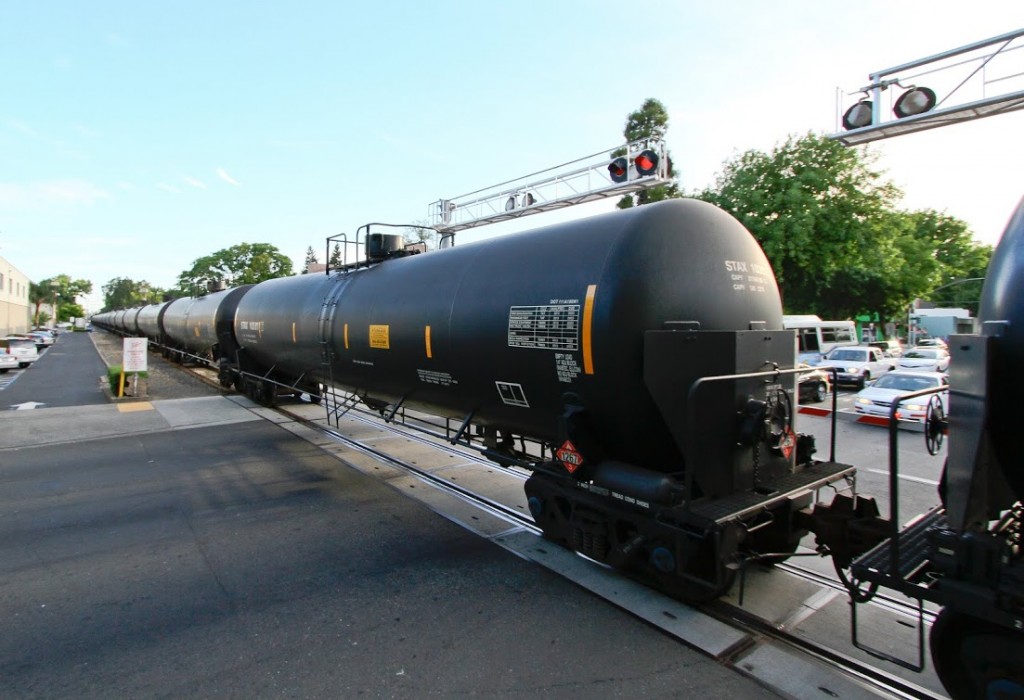
The environmental group Earthjustice is suing the U.S. Department of Transportation over the safety of the rail cars used to carry crude oil to California and around the country. Old tank cars, known as DOT-111s, have been involved in a number of fiery accidents.
In July, Earthjustice asked the DOT to issue an emergency order that would prohibit the use of unsafe tanks cars to carry volatile crude oil from North Dakota’s Bakken formation. Now the group is suing, saying transportation officials never responded to that petition.
The DOT has proposed regulations that would eventually replace the unsafe cars. But it could take years for those rules to phase in, said Patti Goldman, an attorney at Earthjustice.
“They would still allow these railcars to be shipping crude oil and hazardous materials for about four more years,” she said. “And that’s just too long to expose the public to these types of risks.”
Earthjustice filed the lawsuit with the 9th U.S. Circuit Court of Appeals on behalf of the Sierra Club and ForestEthics.
